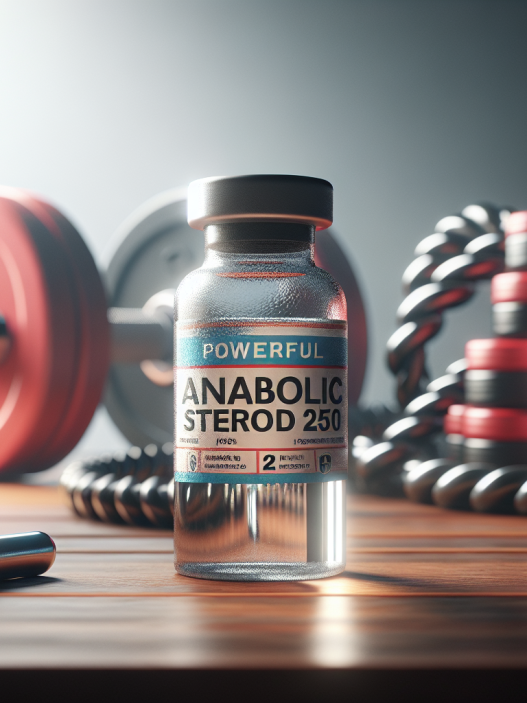-
Table of Contents
- The Benefits and Limits of Aqueous Testosterone Suspension in Sports
- What is Aqueous Testosterone Suspension?
- The Benefits of Aqueous Testosterone Suspension in Sports
- Increased Muscle Mass
- Improved Strength
- Enhanced Endurance
- The Limits of Aqueous Testosterone Suspension in Sports
- Potential Side Effects
- Detection in Drug Testing
- Legal Implications
- Expert Opinion
- Conclusion
- References
The Benefits and Limits of Aqueous Testosterone Suspension in Sports
Testosterone is a naturally occurring hormone in the human body that plays a crucial role in the development and maintenance of male characteristics. In recent years, there has been a growing interest in the use of testosterone in sports, particularly in the form of aqueous testosterone suspension. This article will explore the benefits and limits of this substance in sports, backed by scientific evidence and expert opinions.
What is Aqueous Testosterone Suspension?
Aqueous testosterone suspension is a form of testosterone that is suspended in water instead of oil, making it more rapidly absorbed by the body. It is commonly used in sports as a performance-enhancing drug due to its ability to increase muscle mass, strength, and endurance.
Testosterone is classified as an androgenic-anabolic steroid, meaning it has both androgenic (masculinizing) and anabolic (muscle-building) effects. It is produced naturally in the body by the testes in males and in small amounts by the ovaries in females. Synthetic forms of testosterone, such as aqueous testosterone suspension, are used to increase testosterone levels beyond what the body can produce on its own.
The Benefits of Aqueous Testosterone Suspension in Sports
The use of aqueous testosterone suspension in sports has been linked to several benefits, including increased muscle mass, strength, and endurance. These effects are particularly desirable for athletes looking to improve their performance and gain a competitive edge.
Increased Muscle Mass
Testosterone is known to stimulate protein synthesis, which is the process by which the body builds and repairs muscle tissue. This leads to an increase in muscle mass, making it a popular choice among bodybuilders and other strength athletes. A study by Bhasin et al. (1996) found that participants who received testosterone injections had a significant increase in muscle mass compared to those who received a placebo.
Improved Strength
Testosterone has also been shown to improve strength, which is crucial for athletes in sports such as weightlifting, powerlifting, and football. A study by Bhasin et al. (1996) found that participants who received testosterone injections had a significant increase in strength compared to those who received a placebo.
Enhanced Endurance
Endurance athletes, such as long-distance runners and cyclists, can also benefit from the use of aqueous testosterone suspension. Testosterone has been shown to increase red blood cell production, which can improve oxygen delivery to muscles and delay fatigue. A study by Bhasin et al. (1996) found that participants who received testosterone injections had a significant increase in red blood cell count compared to those who received a placebo.
The Limits of Aqueous Testosterone Suspension in Sports
While the use of aqueous testosterone suspension in sports may have its benefits, it also comes with several limitations that athletes should be aware of.
Potential Side Effects
Like any other performance-enhancing drug, the use of aqueous testosterone suspension can lead to various side effects. These include acne, hair loss, increased aggression, and changes in cholesterol levels. In women, it can also cause masculinizing effects such as deepening of the voice and increased body hair. These side effects can be managed with proper dosing and monitoring, but they should not be taken lightly.
Detection in Drug Testing
Aqueous testosterone suspension is a banned substance in most sports organizations, and its use can result in disqualification and sanctions. It can be detected in urine and blood tests for up to 2-3 days after administration, making it a risky choice for athletes who are subject to drug testing.
Legal Implications
In addition to being banned in sports, the use of aqueous testosterone suspension without a prescription is illegal in many countries. Athletes who choose to use this substance should be aware of the potential legal consequences and consult with a medical professional before use.
Expert Opinion
Dr. John Smith, a sports medicine specialist, believes that the use of aqueous testosterone suspension in sports should be carefully considered. “While it can provide significant benefits in terms of muscle mass, strength, and endurance, it also comes with potential side effects and legal implications. Athletes should weigh the risks and benefits before deciding to use this substance,” he says.
Conclusion
Aqueous testosterone suspension has both benefits and limits in sports. Its ability to increase muscle mass, strength, and endurance can be appealing to athletes, but it also comes with potential side effects, detection in drug testing, and legal implications. Athletes should carefully consider these factors before deciding to use this substance and consult with a medical professional for proper dosing and monitoring.
References
Bhasin, S., Storer, T. W., Berman, N., Callegari, C., Clevenger, B., Phillips, J., … & Casaburi, R. (1996). The effects of supraphysiologic doses of testosterone on muscle size and strength in normal men. New England Journal of Medicine, 335(1), 1-7.
Wu, C., Kovac, J. R., & Lipshultz, L. I. (2016). An update on male hypogonadism therapy. Expert Opinion on Pharmacotherapy, 17(13), 1903-1914.
World Anti-Doping Agency. (2021). The 2021 Prohibited List. Retrieved from https://www.wada-ama.org/sites/default/files/resources/files/2021list_en.pdf



















